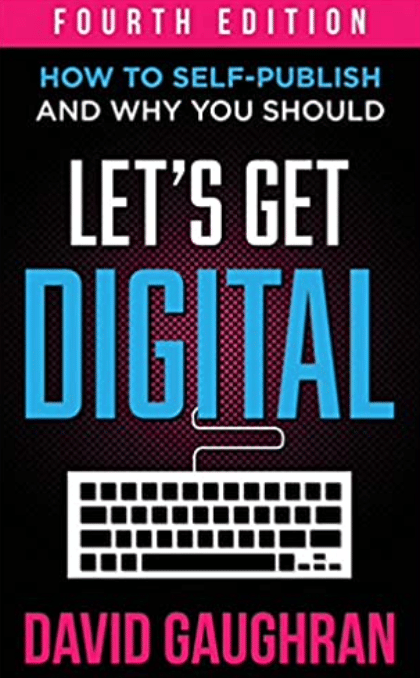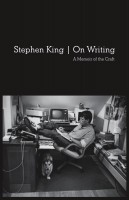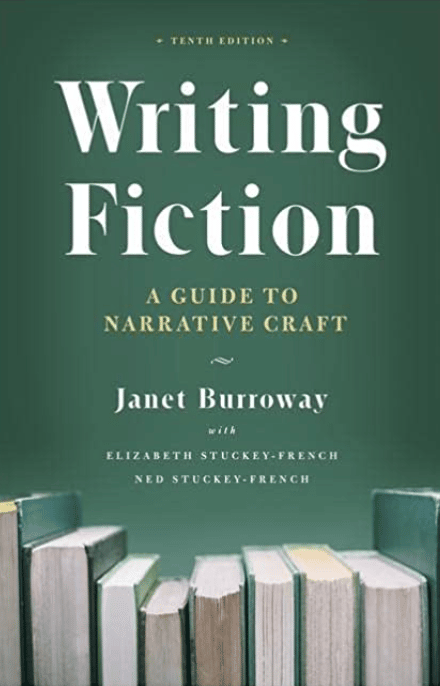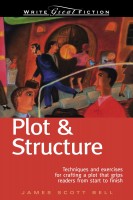So you want to write fiction or memoir. Where do you begin? And what creative writing tools do you need to accomplish your writing goals?

I’m afraid there’s no right answer to get started as a writer. Each writer comes to fiction in their own way. Whatever it is that draws you to a good story—a gut wrenching plot twist, a heroic protagonist, a likeable villain, a happy ending—is great because it helps keep your passion for storytelling alive.
But when it comes to the actual writing, the composition and craft, all the supposed experts in the field disagree on the right approach.
What a beginner needs is a good schooling in the basics, the foundations of creative writing.
In this series, I’ll go over the common tools experienced writers use to write great books so that you can get moving in the right direction.
7 Creative Writing Tools Every Writer Needs
But before we get to the basic tools you need, we have to know what tools are at a writer’s disposal. For a beginner, this is as good a place to start as any.
1. Books!
If you want to write books, you’ve got to read books. A whole freaking lot of it.
Start by reading any and every short story and novel you can get your hands on. Don’t worry about taking notes or thinking too much into the stories. Just read. Chances are, you’ve already done a lot of it. All writers come to writing through reading first.
Spend as much time as you can spare browsing new book stores, used book stores, and ebook stores. Free ebooks are a great resource that cost very little and they’re all over the place. There are a lot of great free titles out there, especially some of the classics that are in the public domain. Check out Project Gutenberg if your budget is tight.
Not sure what to read? Here's a list of ten books every writer should read based on genre.
2. Notebooks (or a Notetaking App)
Carry notebooks with you as often as you can. I like the solid dependability of a large Moleskine Classic, but buy whatever kind of notebook pleases you the most. This is your happy place.
And if you're not a notebook person, consider downloading a notetaking app to your phone or mobile device. You can use Evernote or Notion, but personally I just use the native Notes app on my iPhone. Wouldn't it be better to be writing, even if you're just doing it on your phone, rather than playing a phone game or scrolling through social media?
Immediately make a habit out of journaling. Write every day, even if it’s just about the weather or what you had for breakfast.
This is a judgment free zone, so don’t worry if what you write sucks or doesn’t make sense. Just fill the pages, and when you get to the end of that notebook buy another one, and then another, and then another.
When it becomes harder not to write than it is to write, you’ve accomplished your goal. You’ve made writing into a habit.
3. Software
Journaling is all well and good, but it’s not very productive.
Once you start writing stories you’ll want to use a word processor. We’re beyond typewriters, so I don’t mean those. I mean word processing software.
With the rise in ebooks, doing things digitally first makes a lot of sense and saves you extra work anyways. Don’t commit yourself to the pain of writing longhand in the 21st century. Though writing longhand has its own therapeutic benefits, typing on a keyboard is much faster.
We have lots of book writing software we love at The Write Practice, but here are my top three:
- Best Word Processor for Writers: Scrivener. Scrivener changed my life as a writer. It’s easy to use, easy to keep organized, infinitely flexible, and for those long-term thinkers, you can compile straight to any format, including ebook formats that are ready to publish on Kindle and various other ebook platforms. It has character and setting sketch templates (we’ll go into more detail about character and setting sketches in the next two articles), it autosaves your work, and it rarely ever crashes (unlike the options above). I could go on for days about Scrivener. Instead, I recommend you check out The Write Practice's review of it here.
- Best Editing Tool: Google Docs. Google Docs allows you to quickly share your writing with editors and other writers. I do almost all of my writing and initial rewriters in Scrivener. But when it comes time to share my drafts for feedback, I move over to Google Docs because the real-time editing and suggesting features makes the process so much easier. Check out Google Docs here.
- Favorite Publishing and Book Formatting Tool: Vellum, but it's Mac only (close second: Atticus). Vellum allows you to take what you've written and create beautiful books quickly and easily. I personally have used it to design several of my books and client books, and I know so many other writers who use it to publish their books too. Check out Vellum here. There's just one problem: it's Mac only! So for the PC users, and if you want to experiment with the new kid in town, there's Atticus, which is a cloud based book formatting tool that has some upcoming features that might just make it better even than Vellum. Check out Atticus here.
- BONUS Best Book Promotion Tool: Bookfunnel. Once your book is published, Bookfunnel allows you to create instant landing pages to deliver your book to readers. They also have a native reading app that allows people to read your book once they have it, saving them from painfully migrating it to their Kindle or other reading app. Bookfunnel is useful for delivering your book to beta readers or your launch team, offering a free book or short story for email subscribers, doing book promotions with other authors, or even selling your book. I've gotten thousands of new readers through Bookfunnel and it's a great tool! Learn more about Bookfunnel here.
My advice here is the same as with Notebooks, above: use whatever makes you happy. You’ll be spending a lot of time here.
4. An Author Website and Email List
If you're ever going to publish your writing one day, you need to have an author website, a place where readers can find your work and sign up for your email list so they can be the first to hear when you publish new books.
Now, I know the idea of setting up a website can feel scary, but we've made it easy for you with this guide, 10 Steps to Building an Author Website. It will walk you through everything you need to do to build a great author website.
Don't forget your email list. It's honestly more important than the website alone, because it's the best way to stay in touch with your readers and share your work with them. Our favorite email newsletter tool is Convertkit. You can check out Convertkit here.
5. Grammar and Style Guides
Every writer needs a firm schooling in grammar do’s and don’ts as early as possible.
English grammar can take a lifetime to master, which is why there are these handy style guides you can keep around and reference while you’re doing your work.
These guides, plus a dictionary and a thesaurus (I like dictionary.com for those), are a must have for every writer’s toolbox.
I've written in detail about these three essential style guides for writers. But for easy linking, here they are again:
- The Elements of Style by Strunk and White
- The Star Copy Style by The Kansas City Star
- Writing Tools by Roy Peter Clark
On top of learning about grammar and style from these books, you can use grammar checking tools like Grammarly and ProWritingAid to make the editing process easier. Personally, we prefer ProWritingAid at The Write Practice. You can check it out here (and get a discount on Yearly Premium and Premium Pro licenses with the code WritePractice10).
Need more grammar help? My favorite tool that helps find grammar problems and even generates reports to help improve my writing is ProWritingAid. Works with Word, Scrivener, Google Docs, and web browsers. Also, be sure to use my coupon code to get 10 percent off Yearly Premium and Premium Pro licenses: WritePractice10
6. Study of Craft
Now that you’ve studied grammar, read the kind of fiction you want to write, kept a journal, and found the right software, you should take a step back and study the craft of writing fiction by reading some nonfiction books on the subject.
I’ve read dozens, but these are the ones that have taught me the most:
The best memoir on the subject.
An absolutely indispensable guide to writing. Talk about nuts and bolts, this book has it.
Plot and Structure by James Scott Bell
James Scott Bell is a bestselling author and renowned teacher of writers. This book also introduced me to the LOCK method, which is a really handy tool.
 Let’s Get Digital by David Gaughran
Let’s Get Digital by David Gaughran
I included this one because, while it’s extremely biased towards indie publishing, it provides an excellent overview of the modern publishing landscape for both fiction and nonfiction.
7. Writing Groups
Writing groups are my favorite tool of all. They’re a great way to meet other writers and put your skills to the test. Being a part of a writing group and workshopping your stories is, in my opinion, the absolute fastest and most surefire way to learn how to write fiction. Hundreds of MFA programs across the country agree.
Writing groups provide:
- Moral support. Other writers understand when you complain that writing is hard.
- Like-minded people. Share your hopes and dreams with like-minded people.
- Feedback. The invaluable critique that comes with workshopping manuscripts. They will give you honest feedback even when you don’t want to hear it.
- Healthy competition. Seeing other people produce work is the best motivation for a writer who is not writing.
I love writing groups and believe that every writer should have one in the early stages. Check Meetup.com or your local bookstore for one you can join, or join ours.
For years, we've been helping writers connect and get feedback on their work in our community, and we'd love to have you. Learn more about joining our writing group here.
However, one warning: if the writing group you find turns out to be a back-patting session, bail immediately. You’ll never learn anything if no one has the courage the tell you the truth, especially when it hurts.
How about you? What creative writing tools do you find are essential for your writing? Share in the comments section.
(Note: Some of the links above are affiliate links. Thanks!)
PRACTICE
Now that you know what’s in the beginner’s toolbox, what do you do to practice? Here are five options.
- Read a novel or short story
- Write in your notebook
- Read a book on craft
- Study a style guide
- Find and attend a writing group
When you’re finished, share in the Pro Practice Workshop here.
Not a member yet? Join us here!
 On Writing by Stephen King
On Writing by Stephen King Writing Fiction: A Guide to Narrative Craft by Janet Burroway, Elizabeth Stuckey-French, and Ned Stuckey-French
Writing Fiction: A Guide to Narrative Craft by Janet Burroway, Elizabeth Stuckey-French, and Ned Stuckey-French



1,2, and 3. I do these three anyway, but this is a nice reminder to flap open a book and grab a pen. Thanks for the information.
I have a few of these tools in my kit. Journaling is the main one. I have so many of them that my house might collapse at any minute. For years, I have been in a critique group. We meet weekly. Two of the four of us has published a book or four. One of us got an MFW in the Bennington program. All of us have are members of the Squaw Valley Summer Writing Program. This helps.
I like reading as a tool. I like to read “everything”. Well, not everything — just everything. Of course, there are favorites. (Never begin a sentence with “Of course”. Never use fragments. Break the rules once in awhile).
Grammar is my “Bète noir”. I’ve tried for years to get it write, have looked at small but concise books on grammar. Nothing works. I’m bad at it. I’m good at spelling, or, once was. Our spell checker is a fluke.
Write. Write. Write. And, read.
ps Oh, and I keep notebooks to paste in stuff that pleases the eye.
My essential writing tools are:
1) Word.
2) Spotify
3) Critique Circle
4) The Write Practice
5) The Emotional Thesaurus by Angela Ackerman & Becca Puglisi
6) Ink by R.S. Guthrie
7) Robert’s Rules of Writing by Robert Masello
and most important of all, my Muse, my best friend, and my Ideal Reader: Jennifer.
Five and seven on your list sound interesting. I will have to investigate those!
Ink is another in that vein. Have you read it, yet?
No I haven’t! I will look unit that one too!
Hope you enjoy it, too. If you become fans, tell Angela & Becca, R.w.Foster sent ya, and tell R.S. that Wayne did. 😀
Will do!
I haven’t heard of 5, 6, or 7—thanks for sharing!
You’re welcome. Hope you get use out of them. 🙂
I looked up Critique Circle and joined. It’s just what I need. Thanks!
You’re welcome. If you get confused, look up Whiplash & Momzilla (they are moderators), or want to know who gives good critiques, looks up Emmylou515, Jenb, Missvato & Tami-verse. They’re good people.
R.w., thank you again, You probably saved me weeks or months of trial and error. Your inside scoop is greatly appreciated.
You’re welcome again. Oh, and keep an eye out for Kholoblici. He’s a shady character, always trying to virtually cook the newbies. 😉
I hope you like it, and welcome. 😀
I have started number five! Any writing club is great! Especially in October when you can do creepy and scary and it fits the season! Horror is a great topic.
I’m one of those people that always has 1-3 books going at any one time. Currently I’m reading The Amazing Adventures of Kavalier & Clay, by Michael Chabon, and My Temporary Life by Martin Crosbie. I regularly write in my journal and work on plot elements for some short stories. My novel needs a major overhaul, and I think I’ll better able to accomplish that when I’ve spent time studying the style and craft of writing. The Write Practice is the only writing group I participate in, and it has been very helpful. I do have a call in to a local writers’ group, to see what they’re all about.
Go check out that writer’s group! And if that doesn’t work out, look on meetup for others nearby 🙂
I love On Writing, so I’m going to give Writing Fiction a go. Thanks for the list of implements for our toolboxes!
Writing Fiction taught me a ton, and it has a bunch of great writing prompts and exercises, plus sample stories. Enjoy that 🙂
I definitely need to start journaling, I’m going to get started today !
Excellent info, Matt. I live in Amarillo, TX and love me some Austin. Hook ’em, Horns!
I’ve completed four novels over the years and lost my literary agent last fall before we got a chance to sell my book. I’m debating whether to continue the traditional route, or go indie.
The life-changing all of everything you listed is my weekly writing group. Writing is such a lonely, solitary process, Wednesday evenings are most favorite. I get together with four other, amazing writers who teach me so much, support me all the way and help me be a better writer.
Just requested Writing Fiction from the library, and I will go find my “morning pages” journal. It’s been rather neglected this week… Thanks for the inspiration!
I’m a content marketer and personally I’m using this writing platform named Wording Lab. I like how the layout is kept simple, without any flashy-distracting advertisements.
They have this tool called the Tone Analyzer, which helps to analyze if your writing sounds too positive or negative. True enough, I copied and pasted a couple of news article to test out the function, and all of them were found to be neutral! (which is what news articles are supposed to be i believed!)
Anyway, if you guys are interested, the website is:
http://www.wordinglab.com
Great tool. Thanks for the link.
For the ones who are struggling to write, I recommend this Mac app and website
http://www.placetowrite.com
It’s called “Haven – Creative Writing Tool” and it helps writers overcome writer’s block and stimulate creativity.
Great recommendations Matt! If you’re writing shorter articles or papers, i would recommend steller.com to add some visual aspects and publish where your audience will read it.
I would like to suggest http://www.truenovelist.com. It is similar to Scrivener in that it allows you to organize your scenes, chapters, and notes and rearrange them at will, but it is online only so you can access it anytime and anywhere.
It is also free, so I think it would be a great addition to the toolbox of any writer!
Has anyone any experience with a technical documentation program called Flare by MadCap Software? It is an alternative to FrameMaker and quite powerful, but hard to learn. Useful, I think, for heavy non-fiction.
Thank you for sharing this wonderful
article! Four years ago I also left my job as a marketing manager in Sydney to
do something I’d always dreamed of: writing and editing romance novels full
time. Anyways, here are also my 8 best tips and tricks for those wanting to
follow a similar path http://catehogan.com/tools_for_writers/
This list definitely needs some updating! Reedsy’s Book Editor is an essential element to add to any author’s toolkit — write, format, and produce your book into various ebook formats, all from one beautiful, easy to use interface. Best of all, it’s free! They even promise to add more functionalities like collaboration and track-changes in the future. If you’re serious about writing a book, try it out for free: https://reedsy.com/write-a-book
Cool list! The problem with word processors like Microsoft Word is that, though they have hundreds of features, they’re not built for writing books; they’re built for writing anything and everything. So when it comes to formatting or typesetting, it’s a pain.
I also recommend taking a look at our Reedsy Book Editor, since it combines a simple, Medium-like writing interface with powerful formatting and typesetting, allowing you to export a flawless ePub and a print-ready PDF for free: https://reedsy.com/write-a-book
much better version of the Kansas City Star style guide:
http://www.kansascity.com/entertainment/books/article10632713.ece/BINARY/The%20Star%20Copy%20Style.pdf
Try the Writers’ Reverse Dictionary (http://writersdictionary.com). With it, you can find a word with its definition. Pretty neat, huh?
Great guide Matt! I would also check out TheRightMargin (goal driven writing app, great new alternative to word processors) and featured in product hunt today: https://www.producthunt.com/tech/therightmargin
And for writing groups, a new Slack for Writers called Writer Hangout: https://writerhangout.typeform.com/to/gw9HF4
Another software addition:
Typen — a writing app
http://typen.co
Check it forbes
I use a voice recorder instead of taking notes.
I get most of my ideas at night – even in dreams – and the damn pens often don’t work, or worse, I think they did but they didn’t.
Just make sure you can feel which button(s) to press. The keys on the little Sony IC unit I had were not laid out intuitively, thus, fumbling.
It’s also best to have a recorder from which you can transfer mp3 voice files directly to a computer. You can even use voice to text software to at least get a draft of what you’ve written. It’s easier than play, type, play, type, rewind, play type…
Have you had a chance to try Power Thesaurus (http://www.powerthesaurus.org)?
I recently helped launch a new tool for online writing, designed for medium/long-form: https://eddtor.com. Loved this article’s Study of Craft section!
Great post. I’ve been wanting to put more time into writing and this is a very timely blog for me. Thanks!
Some of this I agree with—for sure. But I am a firm believer that with enough practice, one can learn only to write decently, not great. To be a superb writer, you need to have instinct, intrinsic style, and God-given ability.
Interestingly, you only see this type of reinforcement in writing. For example, I’ve never seen so many workshops, and conferences, and articles about how to become a great artist. Writing—like art—I feel you either have ‘it,’ or you do not.
The problem with blogs and articles such as this is making everyone believe that, by practice, one can—and in some cases—should be a writer. To me, this only muddies the waters, as it were; this is why there are a million mediocre and poorly written books on Amazon; everyone thinks they’re a writer.
But I digress, this is just one man’s opinion.
Good article, though. I will be looking into Scrivener. 🙂